POLYESTER (1981)
A suburban housewife's world falls apart when she finds out her pornographer husband is serially unfaithful to her, her daughter is pregnant, and her son is suspected of being a local foot-fetishist...
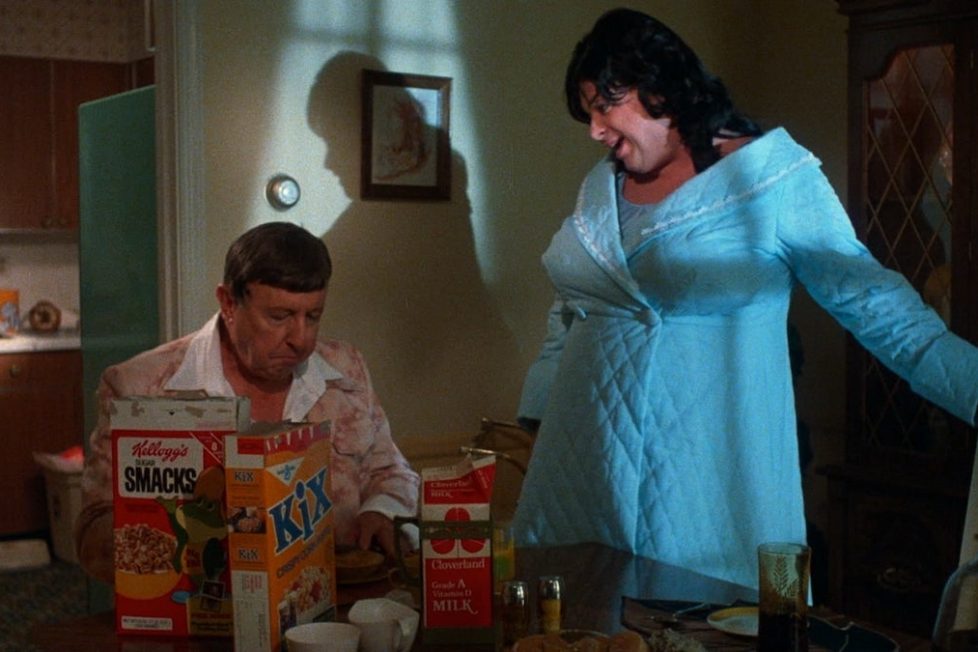
A suburban housewife's world falls apart when she finds out her pornographer husband is serially unfaithful to her, her daughter is pregnant, and her son is suspected of being a local foot-fetishist...


With Polyester (1981) John Waters left behind the independent midnight movies of Pink Flamingos (1972), Female Trouble (1974), and Desperate Living (1977). Bridging two distinct eras of his directorial career, it took Waters from his humble yet outrageous efforts shot on 16mm with his Dreamland entourage to the glossier 35mm trappings of New Line’s growing status as a Hollywood indie. New Line, founded in 1967 by Bob Shaye as a distributor of documentary, gay, foreign, and exploitation cinema, had handled Waters’ earlier films but was now evolving into a production company. As Waters discovered, when they decided to fund Polyester, the company would have a greater say over the casting and production and their relationship would take on a decidedly antagonistic tone when Waters and his team struggled to stick to their budget.
Although Desperate Living had cemented the relationship between Waters and New Line, it wasn’t well-received and is considered one of his least successful films. As the home video boom began and cultural and political resistance to risque material diminished, the appetite for midnight screenings of offbeat movies dwindled. Waters admitted, “by the time I made Desperate Living, the era of midnight movies was over” and he was keen “to do something subtler.” To that end, Polyester would also turn out to be Waters’ first R-rated film after his earlier ‘Trash Trilogy’ had earned X-ratings.
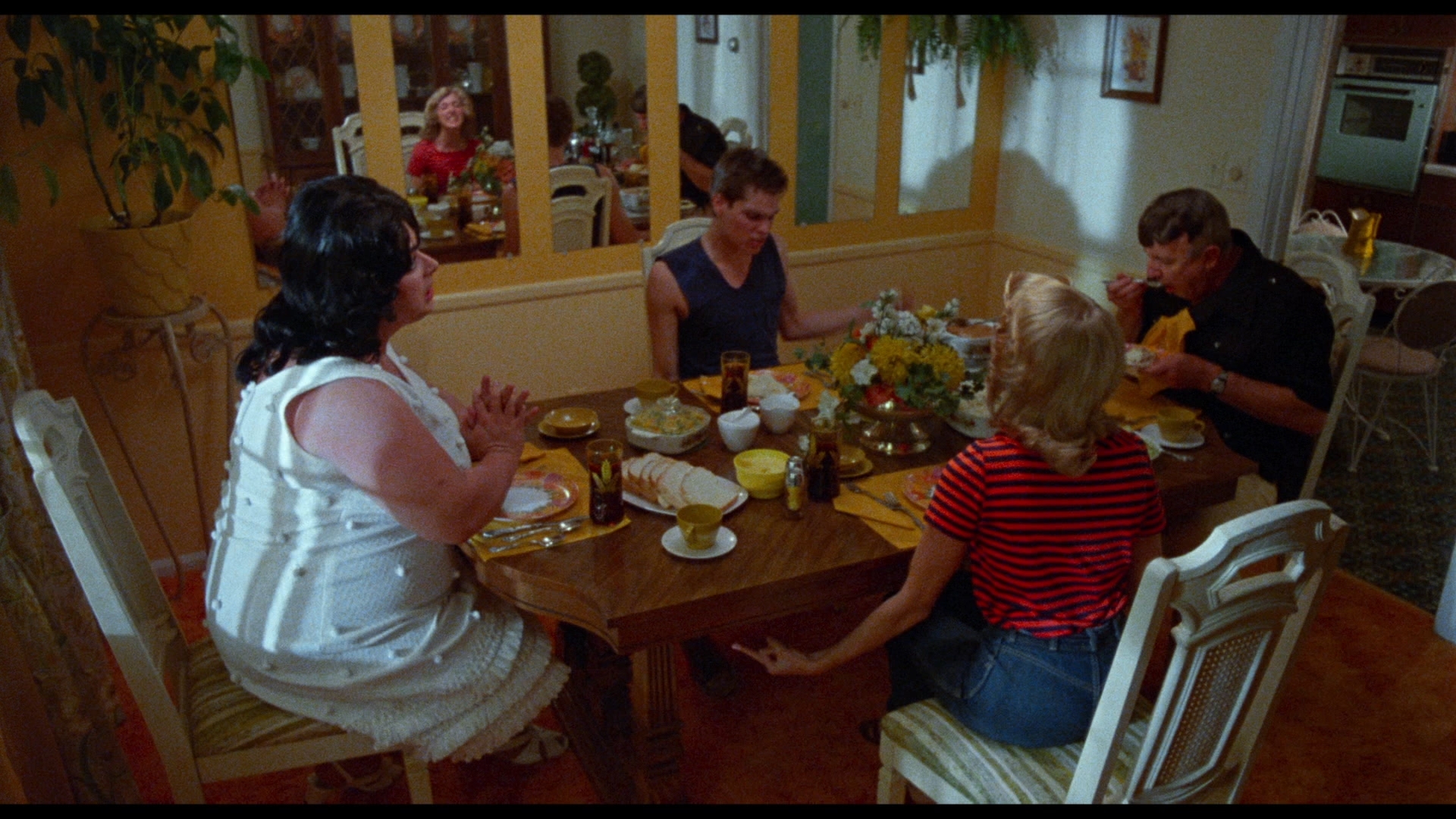
New Line actively encouraged Waters to write a more mainstream script that could match the success of breakthrough horror hits like The Last House on the Left (1972) and The Texas Chain Saw Massacre (1974). Waters, eschewing the horror film as an exploitation vehicle, shifted focus away from his star Divine playing the all-destroying antagonist of his early films to now becoming the housewife victim of suburban troubles in Polyester. It was a satirical homage to the kind of melodramas that Douglas Sirk was making in the 1950s, films “centred on upper-middle-class, middle-aged housewives whose frustrations were solved by the appearance of a charming man.” When he was accused of selling out to the mainstream during production, he defended the film:
Making a domestic melodrama with a 300-pound transvestite and Tab Hunter in Odorama is not my idea of selling out.
More about Hunter and Odorama™ later.
Of greater significance, Divine hadn’t been able to participate in Desperate Living. Indeed, in the six years between Female Trouble and Polyester, Divine’s career in revue and theatre had blossomed, with his roles in Tom Eyen’s comedies Women Behind Bars (1975) and The Neon Woman (1978) conflicting with Waters’ schedule for Desperate Living. His canny new agent Bernard Jay had also helped him develop a recording career inspired by his numerous personal appearances and performances in gay clubs. Waters had to negotiate with Jay when it came to Divine’s appearance in Polyester and protracted discussions about fees (Jay demanded three times what New Line was prepared to offer) and billing lasted until about five weeks before production began. New Line also had to cover a $10,000 insurance premium when Divine failed the physical for the cast’s insurance policy. Allegedly, Divine signed his contract for the film about half an hour before shooting commenced on 1 September 1980.
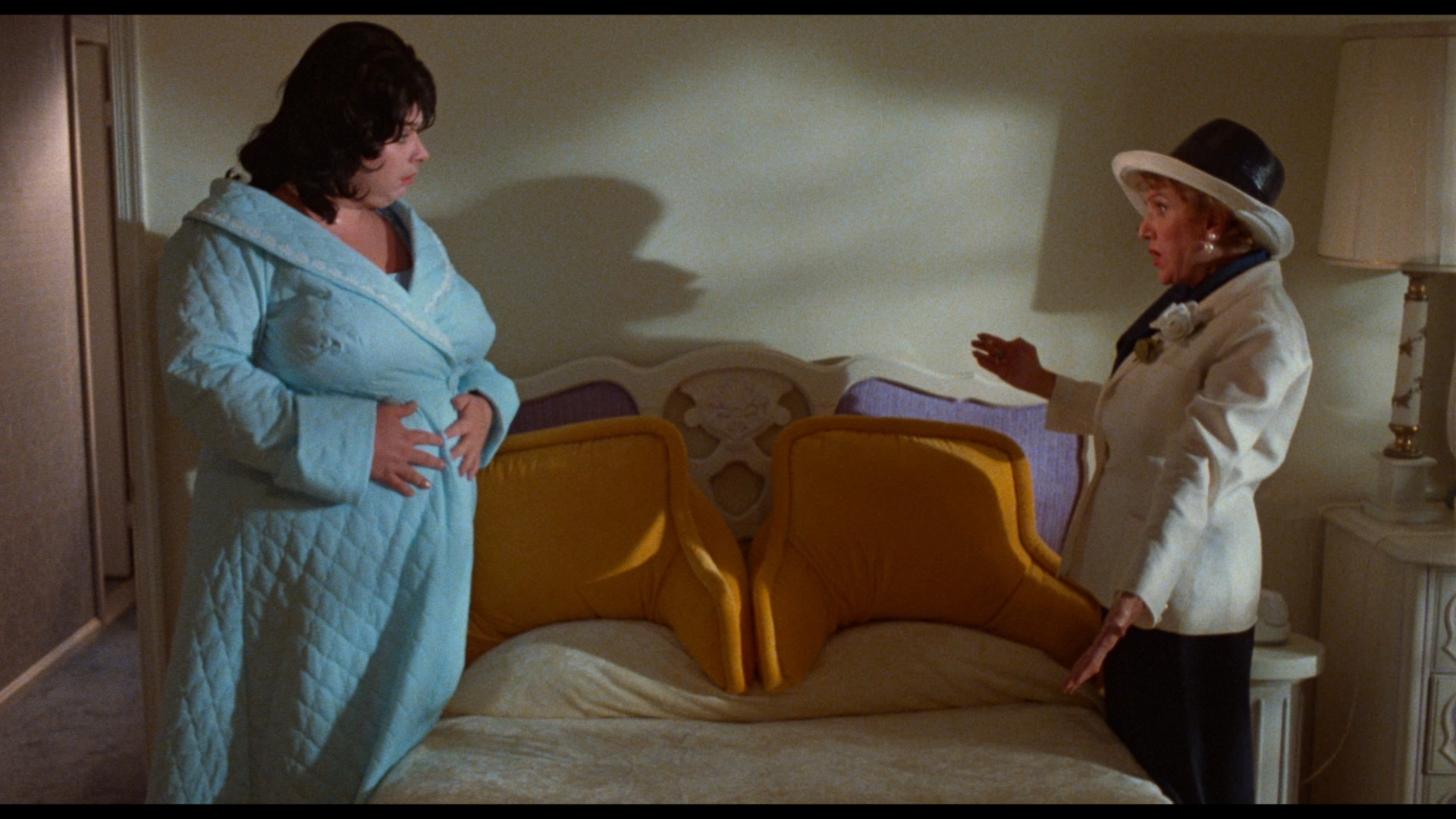
Divine has star billing as Francine Fishpaw, a desperately unhappy Baltimore housewife with a keen sense of smell (a plot point essential to the use of ‘Odorama’™), whose desire for a contented suburban life is sent off the rails by her sleazy husband Elmer (David Samson), a porn cinema owner who’s cheating with his secretary Sandra (Mink Stole), and by her two tearaway delinquent children Lu-Lu (Mary Garlington) and Dexter (Kenny King). Her daughter Lu-Lu, whose career aspiration is to be a go-go dancer, hangs out with the local punks and their leader Bo-Bo (Stiv Bators) and falls pregnant. Her son Dexter, a drug addict with a foot fetish, terrorises women in the neighbourhood as the ‘Baltimore Foot Stomper’. On top of this chaos her mother La Rue (Joni Ruth White), while constantly berating Francine, steals money from her to support her own drug habit.
Francine’s life descends into alcoholism. Lu-Lu, harangued by anti-abortion protestors when she visits a family planning clinic, attempts to induce a miscarriage but is then removed to a Catholic home for unwed mothers. Meanwhile, Dexter is jailed after being caught mid stomp in a supermarket, and even the family dog, Bonkers, commits suicide. As she hits rock bottom, it seems Francine’s friendship with her former house cleaner turned debutante heiress Cuddles Kovinsky (Edith Massey) is the only salve on offer. However, while witnessing a terrible car crash, she meets and falls in love with the handsome and charming Todd Tomorrow (Tab Hunter), owner of an upmarket art cinema that offers its punters caviar and champagne. But, is Todd all that he appears to be?
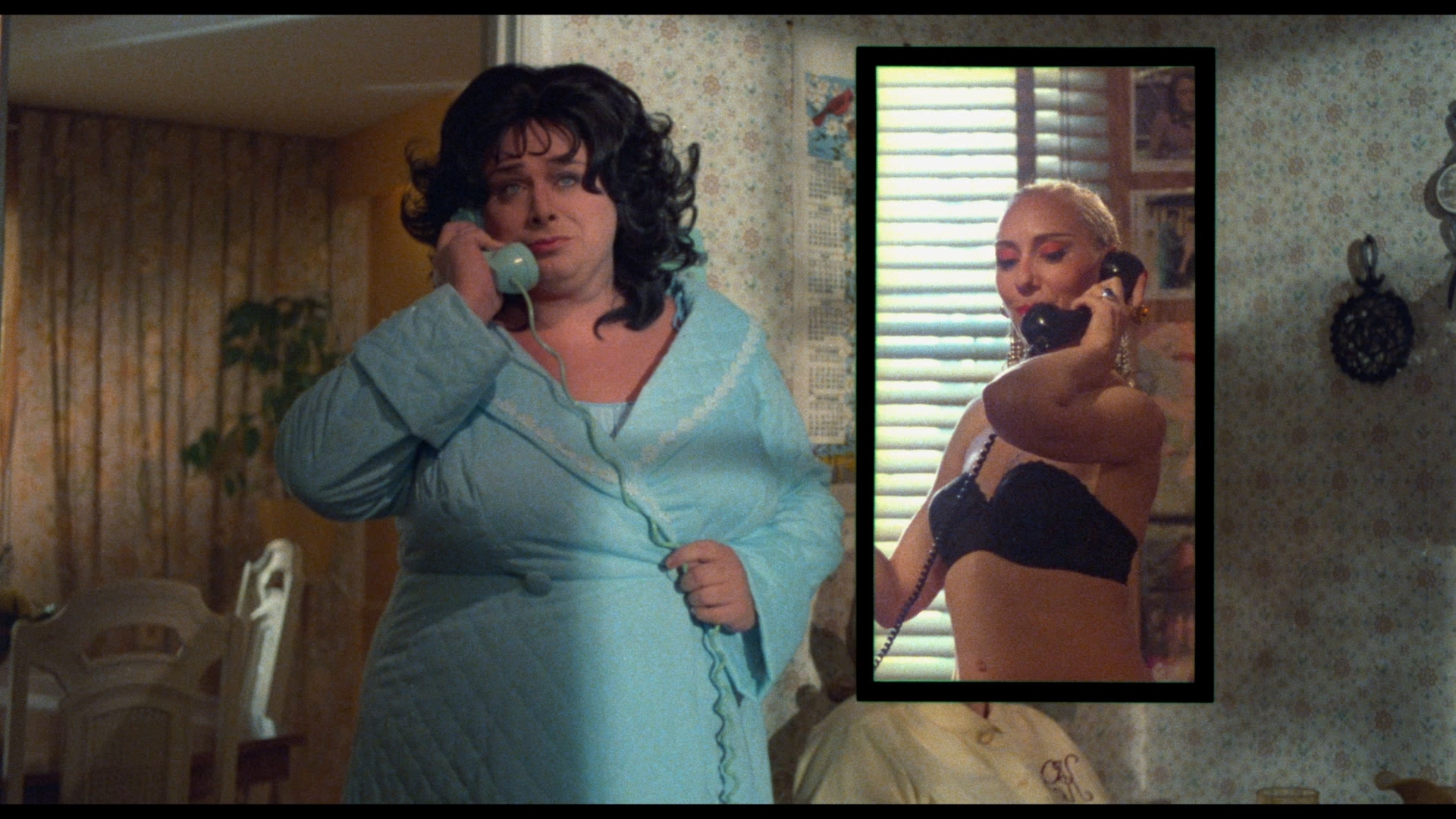
While Divine’s transformation into Francine, a “good Christian woman” upon whom Waters’ piles every degradation, was central to the director’s intentions —preparing the ground for further adventures into warped 1950s nostalgia and suburban horror in Hairspray (1988) and Serial Mom (1994) for instance— he also married this with the casting coup of Tab Hunter. Hunter represented Waters’ growing ability to supplement his regular Dreamland players with Hollywood names (including those on the way up and at the bottom of the heap) and notorious public figures who were in on Waters’ twisted sense of reality. Films after Polyester would feature the likes of Rikki Lake, Johnny Depp, Troy Donahue (another ’50s heartthrob often mistaken for Hunter), Iggy Pop, Joe Dallesandro, Willem Dafoe, Patty Hearst, and Kathleen Turner.
With Hunter’s casting, the film gained a further sense of cultural juxtaposition. Hunter was a manufactured Hollywood idol, one of the last actors to ever have an exclusive contract with one of the major studios, and he was at his peak in war films and westerns during the late-’50s. At the same time, he enjoyed a brief but hugely successful recording career that confirmed his blond, bronzed teenage heartthrob status. His film career stalled in the 1960s, he bought himself out of the Warner Bros. contract and, after brief stints in television drama, sitcom, and theatre, he moved to the South of France and made several Spaghetti Westerns.
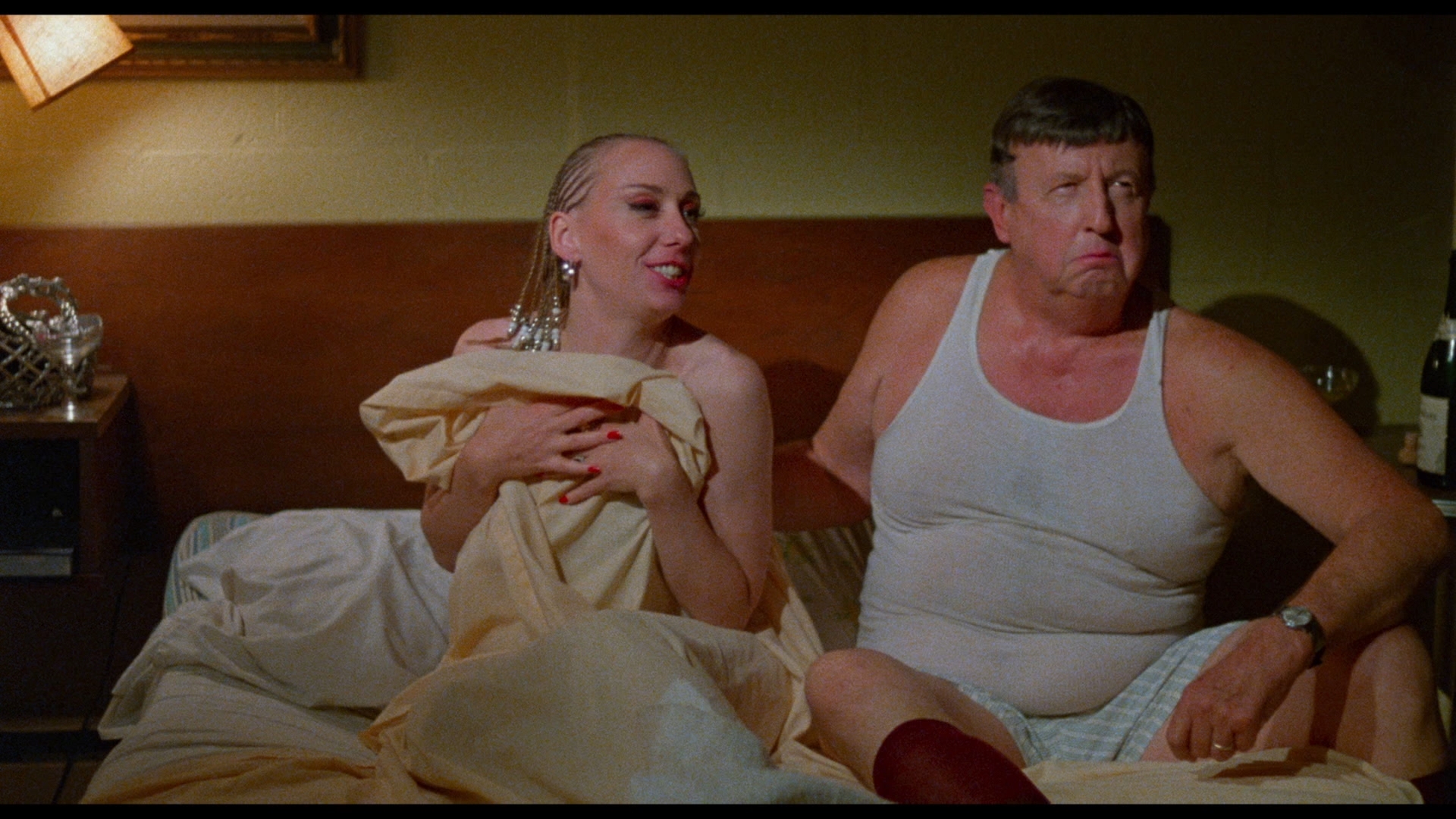
However, in keeping with a running theme in Polyester, Hunter led a double life. He had relationships with actor Anthony Perkins and Olympic skater Ronnie Robertson and an affair with dancer Rudolf Nureyev while he was ‘dating’ the likes of Natalie Wood and Debbie Reynolds for studio ‘publicity’ purposes. Even his arrest at a gay party, later exposed in Confidential magazine, didn’t put a dent in his career and he remained closeted until he officially came out in his 2005 book Tab Hunter Confidential: The Making of a Movie Star.
Hunter was on a merciless but lucrative series of dinner-theatre tours when Waters phoned him in Indianapolis, offered him the role of Todd Tomorrow, and asked: “are you going to have any problem kissing a three-hundred-pound drag queen?” His agent advised him it would be career suicide to make the film but Waters’ screenplay made him laugh out loud and he reckoned, “if the finished film turned out as funny as the script — then I’d look pretty smart for having taken the chance.”
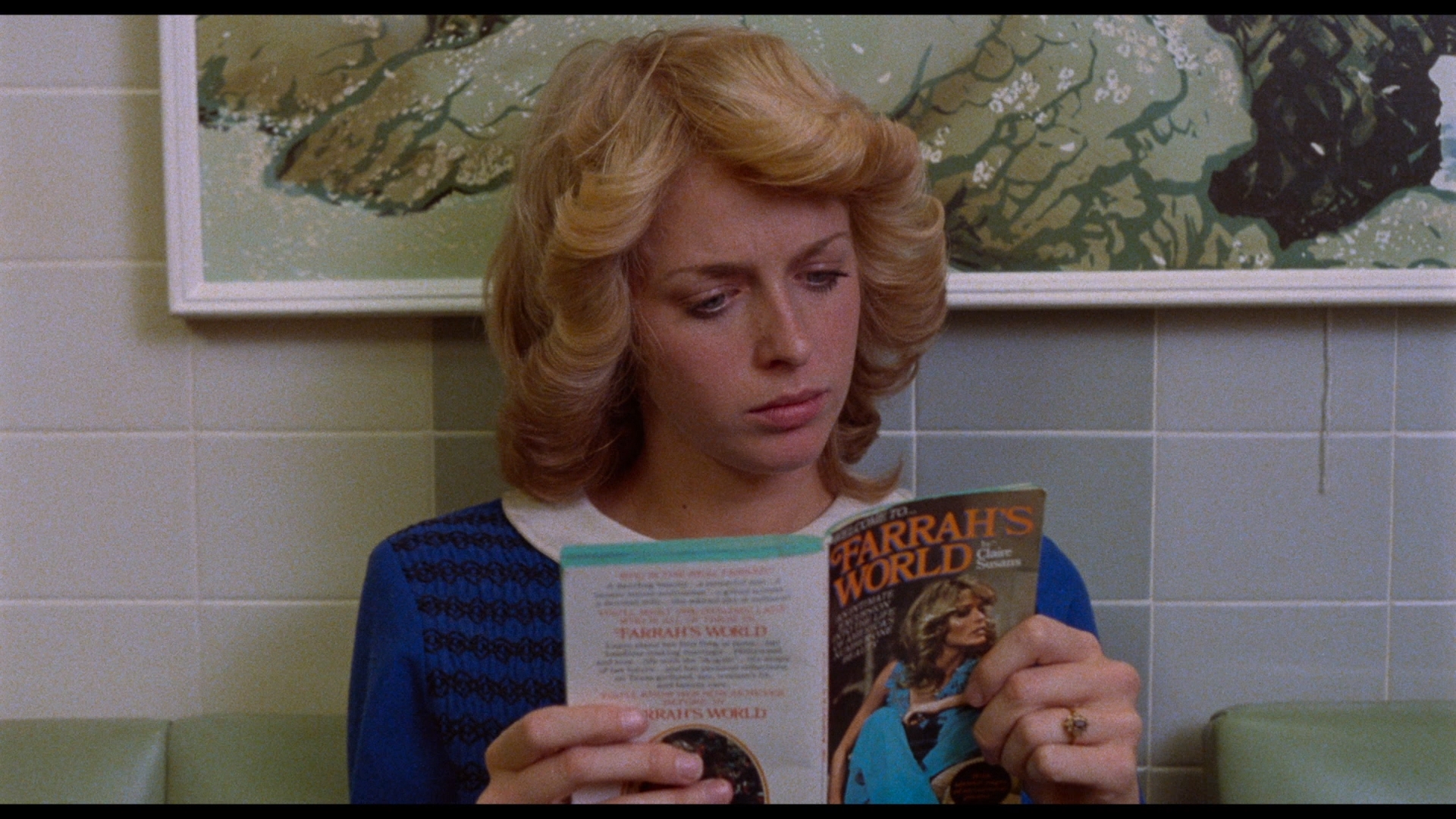
While Hunter was enthusiastic, Waters and line producer Robert Maier were worried that, as a Screen Actors Guild (SAG) member, he wouldn’t be permitted to act in a non-union film. Hunter agreed to a non-union contract but eventually SAG caught up with him, Waters had to testify on Hunter’s behalf and pay a small fine. Hunter and Divine also hit it off so well that they were reunited in the comedy western Lust in the Dust (1985), based on Hunter’s own script and produced by his partner Allan Glaser.
The $320,000 dollar budget for Polyester was the biggest Waters had handled, with money provided by New Line and Michael White, the producer of the stage and film versions of The Rocky Horror Picture Show (1975), as well as $50,000 that Waters raised from friends. Shooting on 35mm with a professional crew helped Waters raise his game and, as a result, he filled the film with split-screen sequences, Steadicam tracking shots, and even an ambitious, if not hazardous, helicopter shot for the opening titles. This big-screen sensibility is also signalled in the change of screen ratio after the opening prologue. Waters notes on the commentary the widening of the picture is inspired by Cinerama, with Dr Quackenshaw exclaiming “this is Odorama!” after he has introduced the use of the Odorama cards and their corresponding on-screen numbers.
So, let’s talk Odorama.
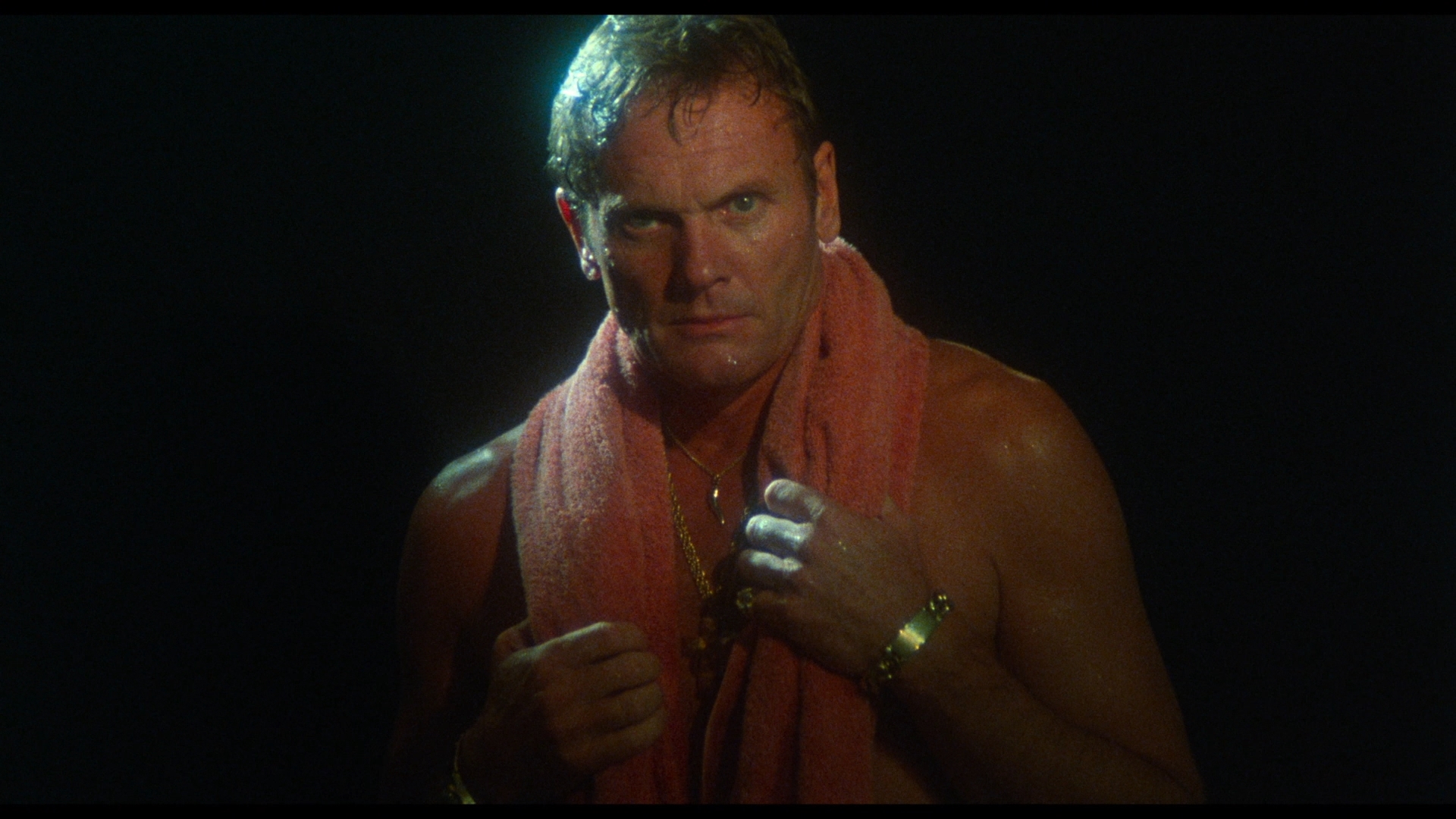
The scratch-and-sniff cards handed out to cinema audiences for Polyester were, as Waters acknowledged, a homage both to the showmanship of producer William Castle and his similar gimmicks, like ‘Smell-O-Vision’, that accompanied the release of Scent of Mystery (1960), and ‘Aromarama’. These systems released different odours into the theatre during performances. In Polyester, it’s Francine’s comically keen sense of smell and the on-screen numbers that indicate to audiences which ones they should experience along with her, by using their Odorama cards to enjoy such piquant delights as smelly shoes, farts, pizza, and air freshener. Apparently, Waters came up with the gimmick to raise money for the production and New Line thought it might help sell more tickets.
However, only The 3M Company could print the cards with the impregnated smells and, according to Bob Maier, “required a pre-paid order of hundreds of thousands of scratch and sniff stickers, which cost almost as much as the movie’s entire production budget.” As well as producing Odorama and non-Odorama prints of the film, distributing and paying for the scratch-and-sniff cards also caused New Line an immense amount of problems and “the financial losses were impressive and uncontrollable.” You’ll be able to recreate that audience interactivity with the Odorama card that comes with this Criterion edition.
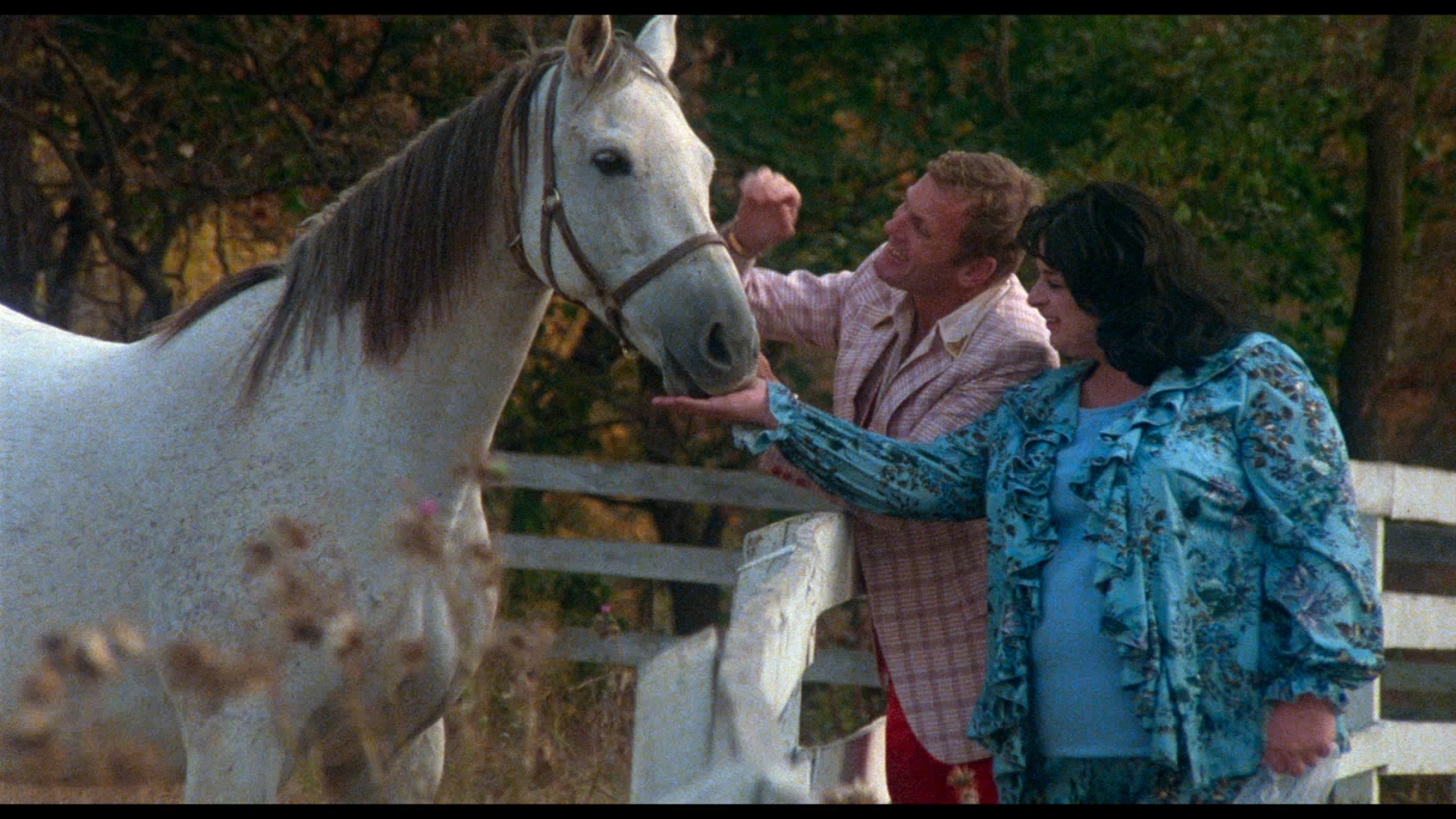
Described as “the Jerry Springer of melodramas”, Polyester hilariously subverts middle-class suburban conventions, fatally wounding a lifestyle that Waters and his Dreamland cohort saw as anathema to their own. The housewife figure of Francine is ritually humiliated throughout the film, assaulted by all manner of appalling events and people, often by her own family, which challenge her fidelity to the values of a mass culture and societal norms rooted in the 1950s. Divine himself is a transgressive element of these besieged conventions, with Waters subverting the tropes of the melodrama by having a drag queen perform as the central hysterical female character. As Elena Gorfinkel notes:
What better embodiment of that impossible fantasy of venerated femininity than the legendary Divine, doing his best bedraggled Liz Taylor impersonation.
The film belongs to Divine as Francine, his blistering performance extolling an ever-increasing sense of hysteria and frenzy as her domestic world disintegrates under fire from drug-addicted relatives, two-timing playboys, pro-life protests, punk rockers, and an adulterous pornographer husband.
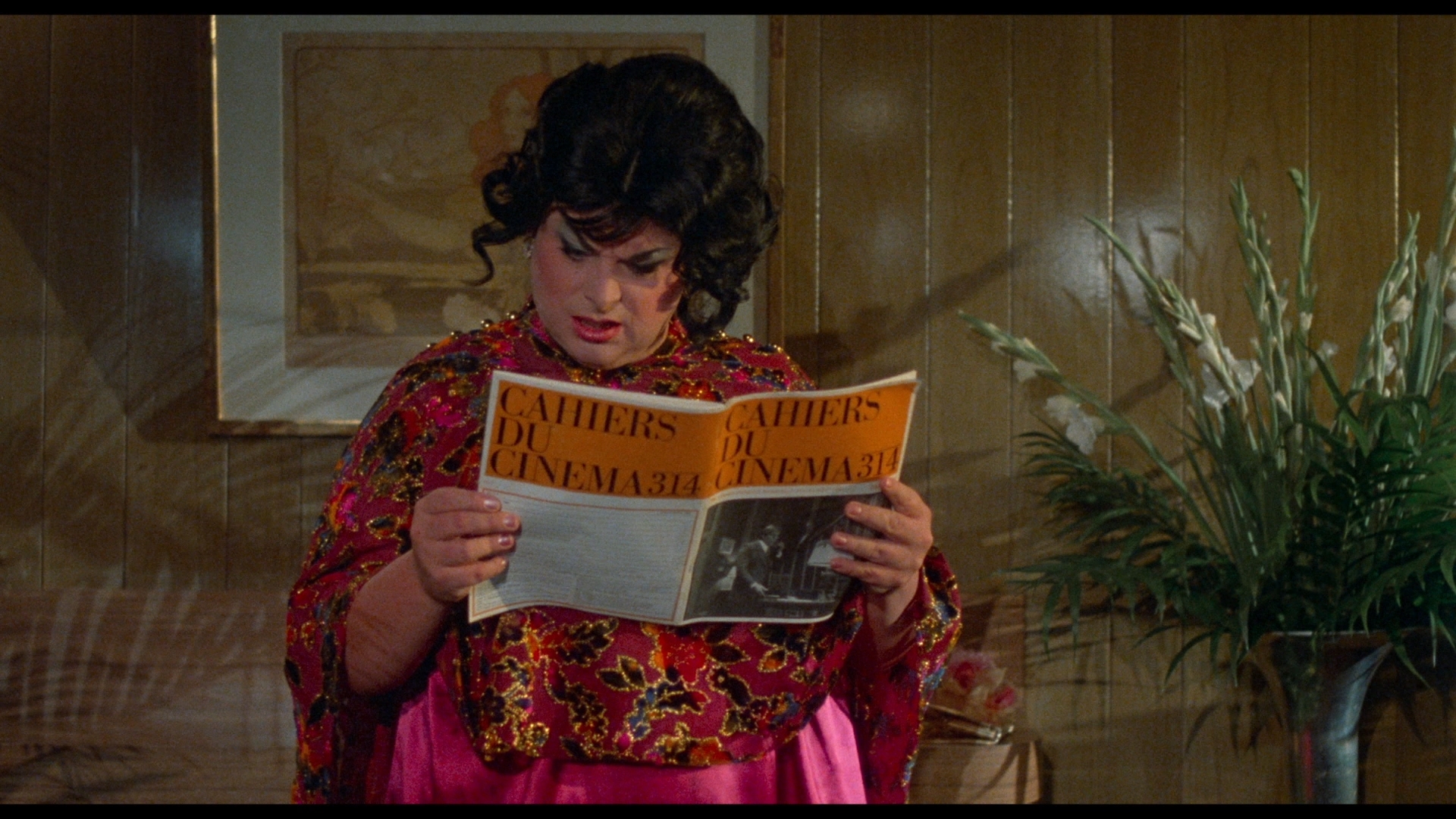
Waters really does make you feel sorry for the character as she traverses the extremes of a melodrama formula that also reflects the contradictions and juxtapositions in Waters’ own aesthetic. The director situates his work and its themes in both the exploitative outrage of My Burning Bush, the porn flick Elmer Fishpaw is running at his cinema, and the high art sensibilities of Cahiers du Cinema, the French film magazine that Francine leafs through as she dates Todd Tomorrow at his art film theatre showing three Marguerite Duras hits. Waters’ own construction as a director is reinforced in the figures of Elmer and Todd, both promoting cinema as forms of desire, excess, exploitation, low and high art.
It seems highly appropriate that Waters cast Hunter as Todd. What better way for Hunter to mock and subvert his own blond beefcake screen idol image and embrace a camp sensibility than to portray a dreamboat whose criminal intentions are closeted until the last reel. He isn’t on screen long enough with Divine but he clearly relishes the opportunity to deconstruct his own Hollywood mythology. Polyester subverts melodrama, including Sirk’s films, as a form of “gay reappropriation through camp humour or as a vehicle for the expression of a gay sensibility.” The film’s outlier performances, the use of Odorama, its heightened costume and production design, expressive lighting using shadows and primary colours, and Hunter’s presence on the soundtrack, crooning the film’s theme song, all provide Waters with a singularly ironic mode of expression. Suffice it to say, it’s a confection full of laugh out loud moments.

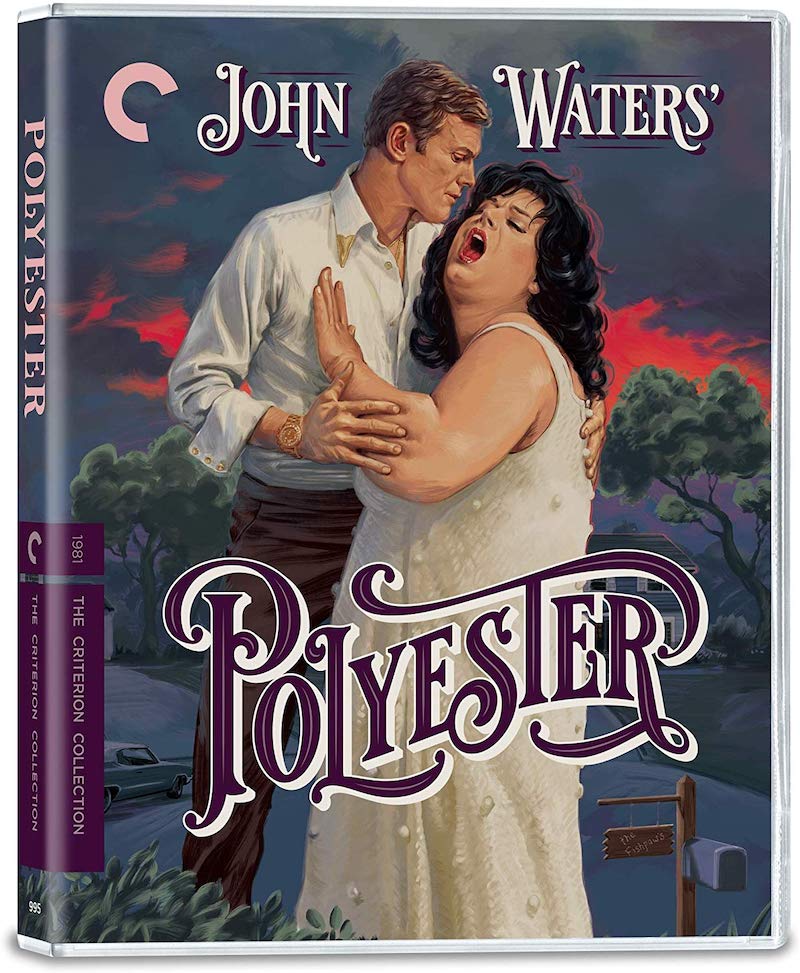

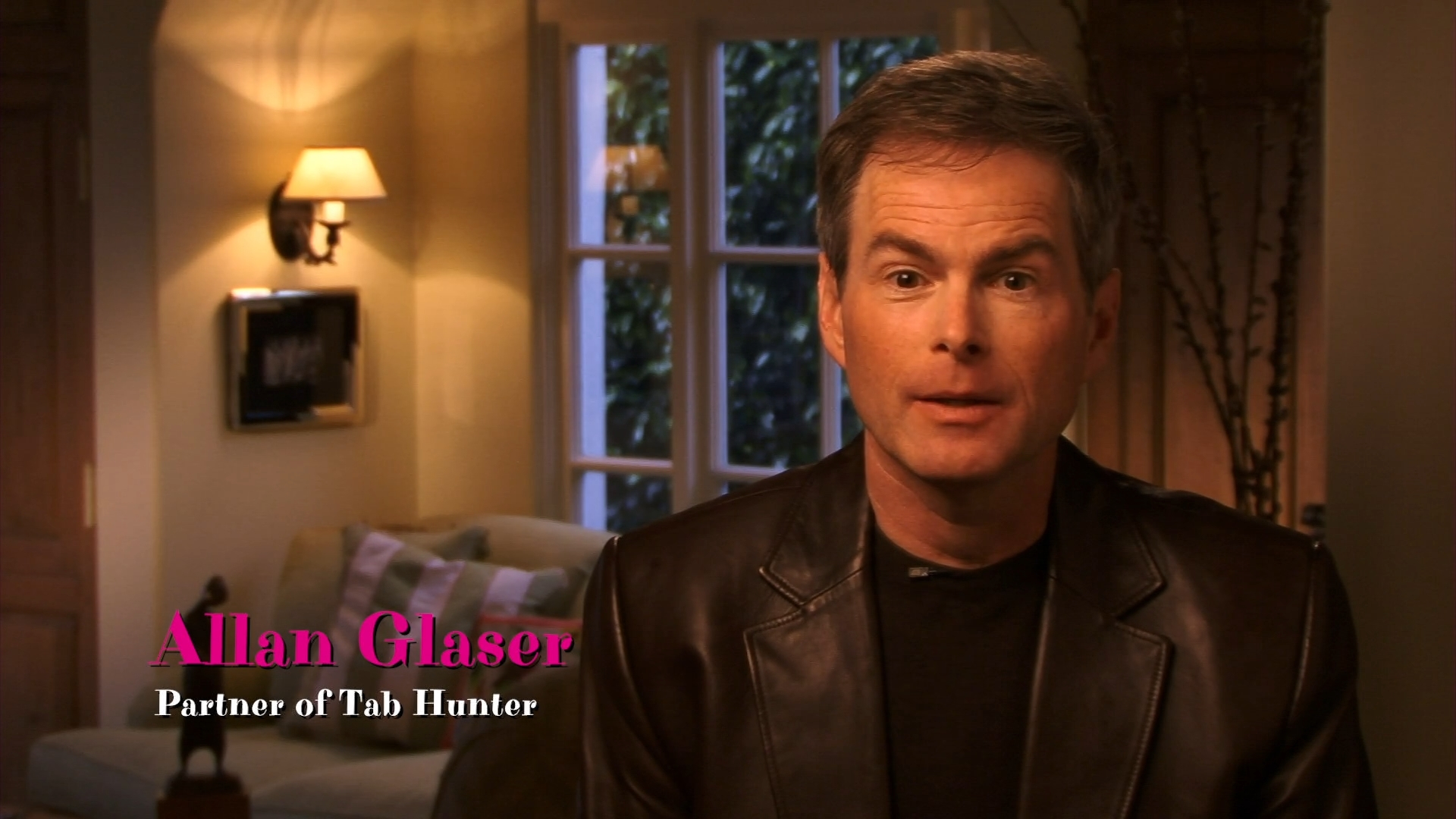
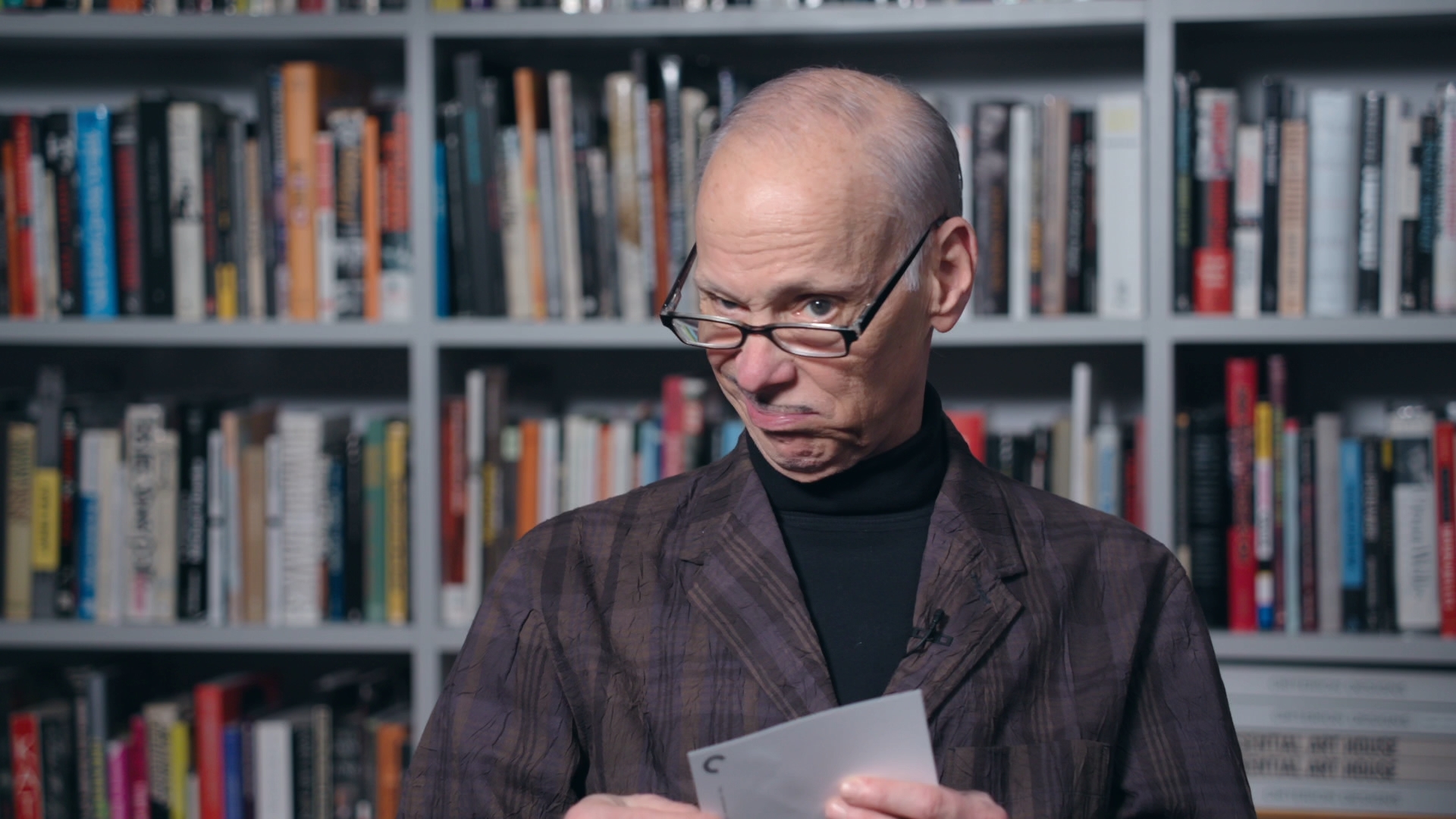
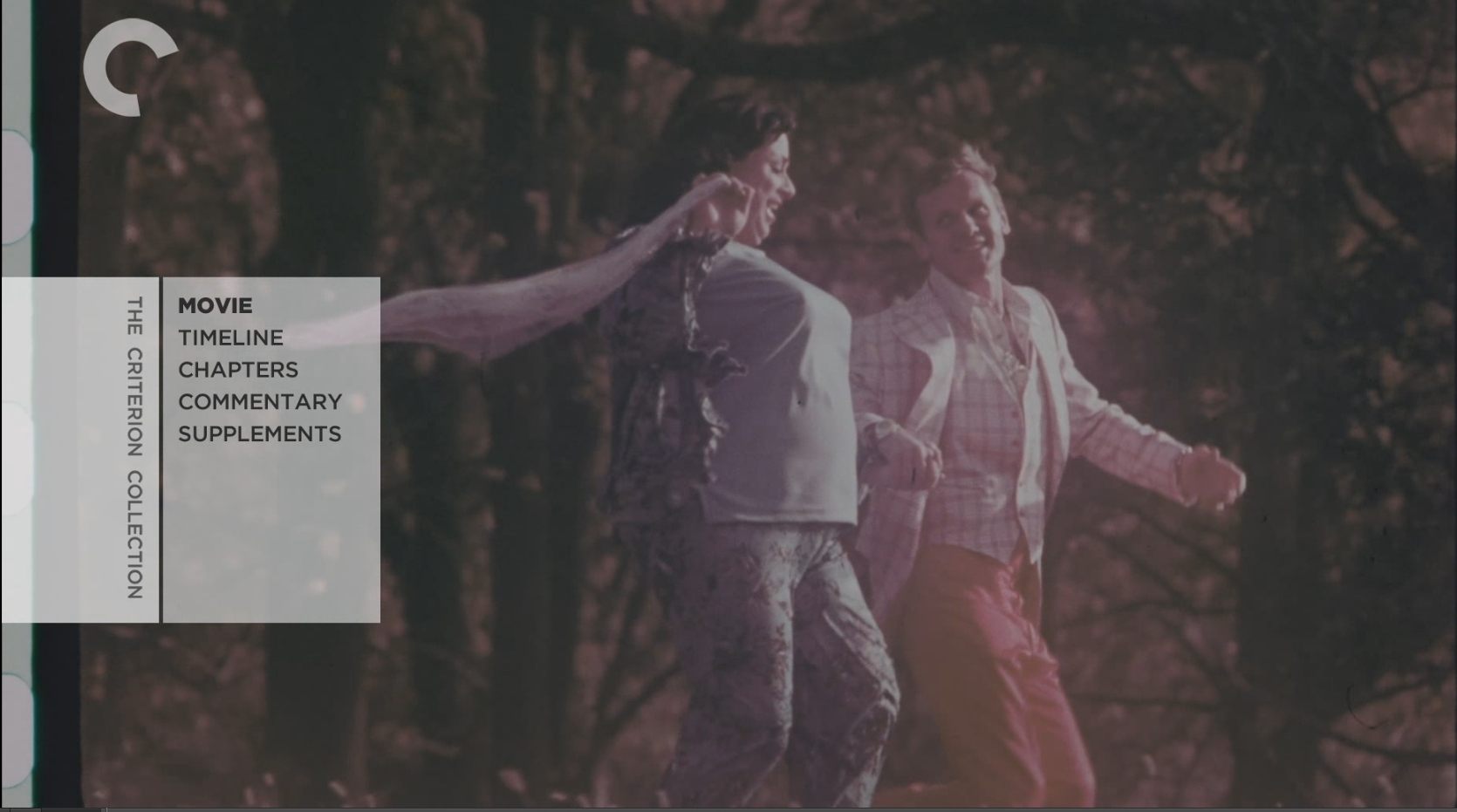

writer & director: John Waters.
starring: Divine, Tab Hunter, David Samson, Edith Massey & Mink Stole.

I am indebted to the following articles and books:
